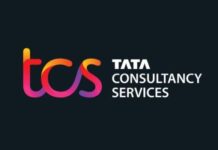
Gen Z, born between the mid-1990s and early 2010s, is rapidly entering the workforce. As an HR professional, it is essential to understand this generation’s unique characteristics and preferences to engage and retain them in the workplace effectively.
In this article, I will share strategies to foster a positive work environment and maximize the potential of Generation Z employees.
According to Inc, Millennials will comprise 75% of the workforce by 2025. Since we are going to have them in such large numbers, it is pertinent that we understand them and engage them even better.
To engage them, we must know what their preferences are and what excites them.
- According to a study by Dell Technologies, 80% of Gen Z employees believe that technology and automation will enhance their job performance and productivity.
- Gallup found that 87% of millennials rate development opportunities as important to them in a job.
- According to a recent study by PwC, work-life balance is essential for 95% of Millennials while being ‘very important’ for 70% of this generation.
- Seventy-two per cent of Gen Z shoppers are more likely to buy from a company contributing to a social cause.
- They prefer quick feedback rather than waiting for a once-a-year or half-yearly appraisal.
Let us understand how they add value:
- Technological Proficiency: Gen Z has grown up in a digital world and is typically adept at using technology. They can bring fresh ideas on leveraging digital tools, social media, and emerging technologies to improve processes, enhance communication, and drive innovation within the organization.
- Adaptability and Flexibility: Gen Z has witnessed rapid changes and uncertainties from a young age. As a result, they tend to be adaptable, flexible, and quick learners. They can easily navigate evolving work environments and contribute innovative solutions to complex problems.
- Entrepreneurial Mindset: Many Gen Z individuals are inclined towards entrepreneurship and self-employment. They often possess an entrepreneurial spirit, which can manifest in their drive to take initiative, look for opportunities for growth and success within the organization.
- Diversity and Inclusion Focus: Gen Z tends to have a strong awareness of diversity, inclusion, and social justice issues. They value diversity and seek inclusive work environments. Their perspectives can help organizations foster a more diverse and inclusive culture, promoting creativity, collaboration, and a broader understanding of diverse customer bases.
- Strong Social Media and Branding Skills: Gen Z has extensively used social media and understands its power and influence. They can contribute to an organization’s social media presence, marketing strategies, and brand development. They often have an intuitive understanding of digital marketing and can effectively engage with online communities.
Now that we know their preferences and value additions, let’s look at various engagement options for this generation.
- Mentorship Programs: Cultivating Growth and Connection: Companies like IBM have successfully implemented mentorship programs to engage and develop Generation Z employees. IBM’s “Millennial Corps” pairs experienced employees with Millennials and Gen Z individuals, providing guidance, support, and opportunities for skill enhancement. These programs foster personal and professional growth while establishing valuable connections within the organization.
- Work-life balance: Recognizing the importance of work-life balance for Gen Z, organizations have implemented flexible work arrangements such as remote work options, flexible scheduling, or compressed work weeks. These initiatives allow Gen Z employees to achieve better work-life integration, increasing satisfaction and retention.
- Social Impact and Volunteer Programs: Organizations have integrated social impact and volunteer programs into their corporate culture to align with Gen Z’s desire to make a positive difference. They may provide paid volunteer time off, organize team-based volunteering activities, or support employee-led initiatives addressing social or environmental challenges.
- Diversity and Inclusion Initiatives: Organizations are actively implementing diversity and inclusion initiatives to create an inclusive and welcoming environment for Gen Z employees. These initiatives may include unconscious bias training, diversity recruiting strategies, employee resource groups focused on underrepresented communities, and fostering a culture that values the diversity of backgrounds and perspectives.
- Learning and Development Initiatives: Companies have implemented comprehensive learning and development initiatives tailored to Gen Z employees’ preferences. These initiatives may include online training platforms, microlearning modules, interactive workshops, and opportunities for certifications or skill development in emerging technologies.
- Employee Resource Groups (ERGs): Many organizations have established ERGs catering to Gen Z employees. These groups provide a platform for networking, community building, and addressing specific needs and concerns of this generation. ERGs focused on topics like technology, innovation, or social impact can be particularly appealing to Gen Z employees.
- Reverse Mentoring: Encouraging Knowledge Exchange. Pioneered by companies like PwC, reverse mentoring programs have proven effective in engaging Gen Z. Through initiatives like PwC’s “Reverse Mentorship Program,” where younger employees mentor senior executives, organizations tap into the fresh perspectives and technological expertise that Gen Z brings. This fosters a culture of collaboration, mutual learning, and bridging the generation gap.
I will conclude by mentioning that organizations must adapt to the evolving workforce dynamics and proactively engage and retain Generation Z talent. In the dynamic landscape of the modern workplace, hiring and retaining Generation Z is the key to unlocking innovation and success.
Organizations can create a vibrant ecosystem where this generation can flourish by adapting to their preferences and values. By understanding the data that reflects Gen Z’s preferences and leveraging real-world programs, we can cultivate an environment where Generation Z thrives and contributes to organizational success.
Let us embrace the opportunities presented by Generation Z and harness their potential, for they are the driving.








